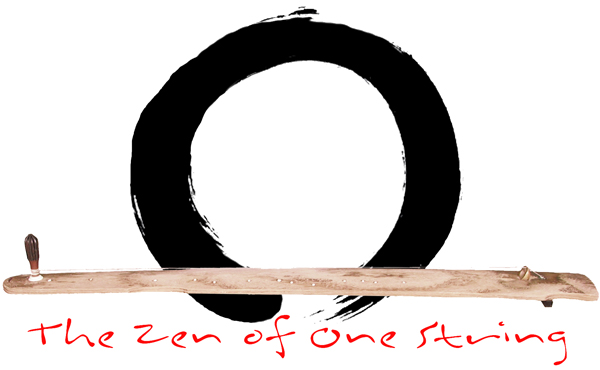 |
The ichigenkin is empty. There is nothing there.
It is full of this nothingness. |
||||
Ichigenkin embodies the fundamental Zen inspired Japanese spirituality of stripping away all unnecessary elements to reveal the essence. The ichigenkin tradition carried by the Seikyodo School does not aim for virtuosity or flashy performance, but for simplicity and spiritual importance. This is not music for mere entertainment to catch the popular ear, but a serious continuance of a truly Japanese cultural expression. The concerts are a meditation in action and non-action, in sound and silence, and in one note and many notes. Audiences gently slip into another world, another time, another reality. |
||||
 |
Issui Minegishi is the Iemoto (Grand Master) of Seikyodo ichigenkin, the only unbroken line of performers on this rare Japanese one string zither. Her performances reveal the stark simplicity yet depth of the ichigenkin. The repertoire ranges from 300 year old works that accompany sung waka poetry, to contemporary works that embody the essence of the instrument. Minegishi has performed in throughout Asia, Europe and North America from concerts at Carnegie Hall to new music festivals. | |||
Minegishi performs with Canadian multi-instrumentalist Randy Raine-Reusch, who has written a number of contemporary works for the ichigenkin. An international concert-artist with credits that span Aerosmith and Cirque du Soleil to symphony orchestras and electro-acoustic works, Raine-Reusch has brought rare and seldom heard world instruments into the mainstream. While not touring he has founded major international festivals and museums, and is an active consultant on world music for numerous governments. |
 |
|||
The ichigenkin is a simple instrument, with only one silk string, a tuning peg, a bridge and a plank as a soundboard. Yet the ichigenkin has a powerful voice, one that reaches very deep inside the listener, and moves them like no other instrument. For over three hundred years this rare Japanese instrument has been played by monks, samurai and proponents of the Zen. Rarely heard, even by Japanese, Minegishi and Raine-Reusch provide a unique opportunity to experience this extraordinary music and instrument. |
||||
Minegishi solo performance |
Raine-Reusch and Minegishi |
Raine-Reusch solo |
||